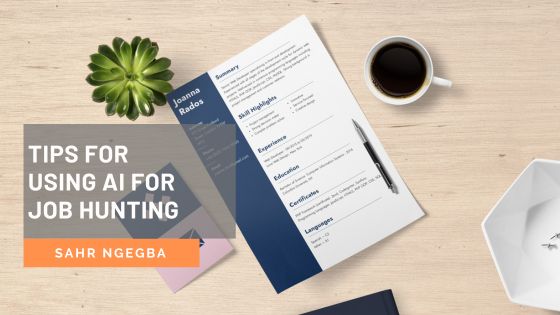Artificial intelligence (AI) has become a crucial ally for job seekers in the rapidly evolving job market. AI is revolutionizing how we approach job hunting, making the process more efficient and targeted. From crafting personalized resumes to identifying the best job opportunities, AI tools offer a competitive edge in a crowded market.
AI’s role in the job market began with employers using it for screening applications and has evolved to assist job seekers in various ways. AI algorithms can now process massive amounts of data to match candidates with suitable job listings. This advancement has transformed job searching from a manual, time-consuming process to a more streamlined and efficient one.
For employers, AI offers an efficient way to sift through thousands of applications, identifying those that best match the job requirements. This technology uses keyword matching, pattern recognition, and even predictive analytics to assess a candidate’s fit for a role.
AI tools can analyze job descriptions for job seekers and help tailor resumes and cover letters for specific positions. Additionally, AI-driven platforms provide insights into job market trends, salary benchmarks, and skill demand, enabling candidates to make informed decisions.
Understanding the capabilities and limitations of AI in job hunting is essential. While AI can significantly aid in the job search, it’s not a silver bullet; a successful job hunt still requires a personal touch and human judgment.
Optimizing Your Resume with AI
Leveraging AI for resume optimization is a critical step in modern job hunting. Various AI tools can analyze your resume against job descriptions, highlighting areas where your resume matches well and where it falls short. This feedback is invaluable in tailoring your resume for specific roles, ensuring it passes through AI-driven applicant tracking systems (ATS) used by many employers.
To maximize the effectiveness of your resume, focus on including relevant keywords and skills frequently mentioned in the job descriptions you’re interested in. AI tools can suggest these keywords based on the job postings you upload. However, balancing optimization for AI and readability for human recruiters is crucial. Overstuffing your resume with keywords can make it unreadable and may even be flagged as spam by more sophisticated ATS.
Additionally, the format of your resume matters. AI systems may struggle to parse overly complex layouts or non-standard formatting. Stick to clear, simple designs to ensure your resume is AI-friendly while still being visually appealing to human recruiters.
AI in Job Matching and Market Insights
AI is beneficial in optimizing resumes and plays a pivotal role in job matching and providing market insights. AI-driven job search platforms use algorithms based on candidate skills, experiences, and preferences. This approach is far more nuanced than traditional keyword-based searches and can uncover opportunities you might not find through standard job search methods.
These platforms often use machine learning to improve their suggestions, learning from your interactions and feedback to provide increasingly relevant job recommendations. This personalized approach can save you significant time and effort in your job search, allowing you to focus on the most promising opportunities.
Beyond job matching, AI tools offer valuable insights into the job market. They can analyze trends in job postings, such as rising demand for specific skills or industries experiencing growth. This information can guide your career development, helping you understand where to focus your learning and development efforts to increase your employability and stay competitive in the job market.
However, use these insights judiciously. While AI provides a broad overview of market trends, personal interests, and job satisfaction should also guide your career decisions.
Preparing for AI-Based Interviews
As AI integration in the hiring process deepens, candidates increasingly encounter AI-based interviews. These interviews often involve AI-driven systems evaluating candidates’ responses, either through written or video formats. Preparing for these interviews requires understanding how AI interprets and scores responses.
AI interview platforms typically assess what you say and how you say it. This includes analyzing speech patterns, facial expressions, and body language in video interviews. To prepare, practice speaking clearly and confidently. You can use AI interview preparation tools that provide feedback on your tone, clarity, and body language.

